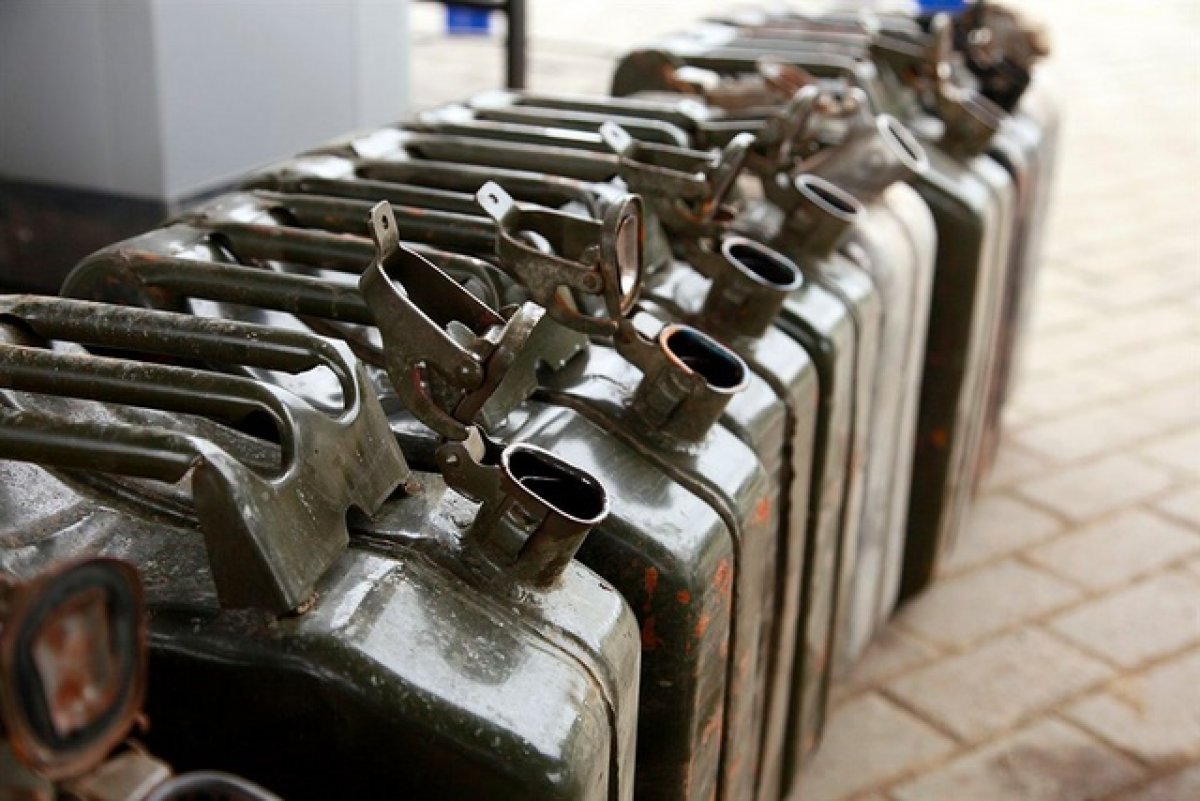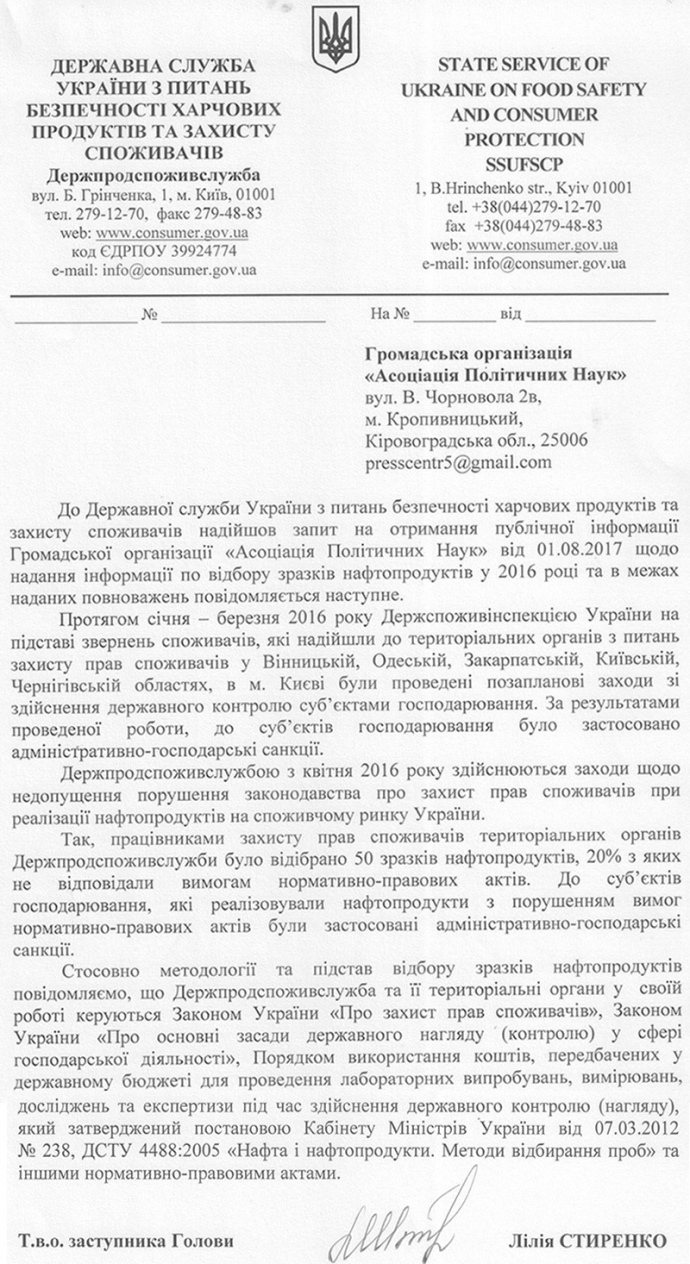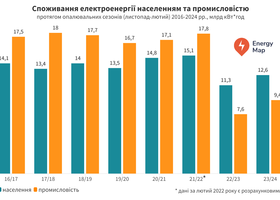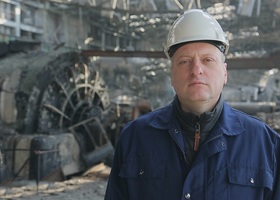Petroleum products quality: who sells "bodiaga" and why?
Drivers and even fuel sellers increasingly complain about the fuel quality. What is the reason for this? Why is there still no effective system to control and punish the offenders? Who are the retailers most notorious for dealing in bootleg fuel?

Scandals about fuel quality are frequent in the media. Complaints about low-quality gasoline or diesel fuel come even from sellers of these products.
What is the reason for this? Why is there still no effective system to control fuel quality and punish the offenders? Who are the retailers most notorious for dealing in adulterated fuel?
System of Control and Punishment of Offenders
What is bootleg fuel?
"Usually, this term denotes low-quality gasoline, but in recent years, the adulterators use high-quality components, hire professional technologists, and produce a decent quality fuel. For example, the BRSM chain officially imports quality components from Russia," says Director of Consulting Group A-95 LLC Serhii Kuiun.
According to him, the quality of A-95 gasoline is based on Belorusian A-92. "In view of such progress in product quality, we now use the term "bootleg fuel" (or “bodiaga” as locals call it), meaning illegal or untaxed fuel that is detrimental to the state. The share of taxes in the fuel price offered at gas stations amount to 35 percent, and this is the main driving force of the process," Kuiun explains.
The government's attempts to eradicate the illegal fuel market may not be regarded as successful. In December 2016, the government appointed the State Environmental Inspection of Ukraine to supervise the fuel quality, but the new controller has never started to work as intended for two reasons.
First, the corresponding resolution came into force as late as June 20, 2017.
Second, according to applicable law, the Inspection should operate in accordance with a sectoral plan approved by December 1 of the year preceding the year of the plan.
Since the resolution came into force in June 2017, it was absolutely impossible to have the plan approved by December 2016. "This is the reason why the State Environmental Inspection has not taken any measures of state market supervision over gasoline, diesel, marine and boiler fuel," Viktor Kantsurak, deputy head of the department, explains.
Currently, the technical supervision functions are dispersed. In the area of consumer rights protection, they are performed by the State Service of Ukraine for Food Safety and Consumer Protection, and in the area of consumer protection from unfair competition, by the AMCU.
Large gas station chains have their own quality control departments. The chains WOG, AMIC, TNK/Zolotyi Gepard, and Paralel have mobile laboratories with expensive equipment.
If gas station managers or staff resort to abusive practices, they can be fired. Such cases are not exposed to the general public, therefore, the offenders are never prosecuted administratively or criminally, nor are consumers ever compensated for losses. The fact that the fuel quality is monitored by so many authorities blurs the responsibility for violations.
But consumers alone cannot control the quality of fuel. It is impossible to judge its quality by its taste, color, or smell. Expensive tests are needed instead. To test one sample costs approximately one thousand hryvnias. Attempts by the government to create state laboratories for such tests have still been not successful.
According to Mariia Nizhnik, AMCU First Deputy Head, Ministry of Energy and Coal Industry, specialists are currently preparing a draft order approving the procedure for determining fuel quality testing laboratories. It should then be approved by the AMCU.
The list of fuel controllers can be extended by non-governmental organizations and the media, but this will be of little effect as their opinons are not binding. Under the Ukraine-EU Association Agreement, the government has committed to introduce a system for monitoring the quality of petroleum products and to take measures to reduce the sulfur content in fuel.
According to the special projects director at Psykheya Research and Production Center, Hennadii Riabtsev, proposals regarding the creation of such a system have been put forward by market participants themselves. They agreed to provide information to the Ministry of Energy and Coal Industry for compilation and reporting.
"Only a few companies, mostly importers, have actually supported this proposal, but nobody made any step forward to further this idea," the expert says.
Few Complaints Means Few Inspections
Consumers are unable to control the fuel quality, the state can do this by responding to consumer complaints. The State Service of Ukraine for Food Safety and Consumer Protection registers such complaints. However, over the past three years, it has received only 29 complaints about the quality of petroleum products, mostly from the Zaporizhzhya Oblast.
According to the Service, 12 unscheduled inspections have been carried out, six companies brought to responsibility and fined for a total of UAH 769,314. In 13 cases, the information has not been confirmed and another four complaints are under consideration. Experts attribute such a small number of inspections to the following three factors:
First, the lack of centralized funding for fuel inspections and no expert appraisals by the State Service of Ukraine for Food Safety and Consumer Protection.
"To control and punish offenders is the prerogative of the state, but it is already a decade as this activity has not been financed, although such control would be economically beneficial. The amount of shadow fuel cash is much greater than the cost of control," Kuiun argues.
Second, the lack of staff responsible for fuel quality checking.
Third, the lack of appropriate equipment in oblast administrations.
In the words of Olena Matviienko, Acting Head of the Main Office of the State Service of Ukraine for Food Safety and Consumer Protection in the Kyiv Oblast, the department has suspended laboratory tests during state control, pending the Cabinet of Minister's approval of the necessary regulatory acts. That is, it is now impossible to check the quality of fuel by means of laboratory tests.
Besides, it is unreasonable to check what consumers hardly complain about, because in this case it is extremely difficult for one to prove one's point and get compensation.
"In order to formally lodge claims, you need to have a receipt, bring your automobile to the appropriate gas station, make a scene, draw up a report in two copies and get it signed by someone of the responsible persons at the gas station. If such persons refuse to sign it, you need to have it signed by witnesses in confirmation that you indeed refueled at this gas station. It is difficult to do all this," Riabtsev explains.
Moreover, according to him, the owner of the gas station is not responsible for the quality of fuel and for possible losses caused by the fuel it sells. The manufacturer is actually responsible. If the refueler has photocopies of a certificate of quality and certificate of compliance, it is sufficient to clear itself of any allegations.
Response to Complaints, or Pressure?
However, things are not so clear as regards inspections following complaints in Zaporizhzhya. In 2016, the State Service of Ukraine for Food Safety and Consumer Protection checked the quality of petroleum products at gas stations of retail operators. The news about this was posted on its website. But after the author of this article made a request for details, the news was removed from the website and remained in the cache.
"According to the Consumer Rights Protection Inspection of Ukraine (now this is the State Service of Ukraine for Food Safety and Consumer Protection), 235,200 liters of petroleum products were checked and sampled at 15 gas stations in January-March 2016. 20,000 liters was removed from the market," the news reports.
Operators were fined for UAH 246,900 for improper quality of petroleum products.
The State Service of Ukraine for Food Safety and Consumer Protection has acknowledged the fact of carried out inspections.
"In January-March 2016, the Consumer Rights Protection Inspection of Ukraine, responding to consumer complaints filed with local consumer rights protection offices in the Vinnytsya, Odesa, Zakarpattya, Kyiv, and Chernihiv Oblasts, as well as the City of Kyiv, conducted unscheduled inspections and applied sanctions against business entities," Liliia Styrenko, Acting Deputy Head of the State Service of Ukraine for Food Safety and Consumer Protection, said.
It may seem that the inspectors have found and punished the adulterators and reduced the quantity of low-quality fuel and hence the risk for drivers to get substandard fuel in their tanks. However, the oblast authorities do not mention these inspections in their official responses, and the available figures and evidence do not match. Why?
Oleh Serovskyi, President of ZaporizhOilGroup Trading House LLC, a company on whom the inspectors imposed the largest fine in Ukraine, amounting to UAH 303,648, claims his enterprise is under pressure for corrupt reasons.
"There is currently a moratorium on inspections, and the State Service of Ukraine for Food Safety and Consumer Protection can inspect enterprises only on consumer complaints. And such a complaint was made. The complaining consumer had never applied to us asking for damages. This is a case of contracted pressure. The controlling authorities just cannot exist without bribery," Serovskyi believes.
He is confident of the high quality of his fuel. "During the inspection, the controllers revealed a number of violations, but the company management were absent at that time. If we had any problems with the fuel quality, we could just not let them [the inspectors] in and get fined for UAH 100 for doing this. But our business is transparent, and therefore we permitted this inspection," he added.
ZaporizhOilGroup contests the the results of this inspection. The company lodged a lawsuit, won the case in a first instance court, overturned the imposed fine, but lost the following appeal case. A cassation appeal is now being prepared.
The CEO of ZaporizhOilGroup is Oleksii Yevseiev. Its owner is Oleh Serovskyi, a former member of the Zaporizhzhya City Council from the Party of Regions. The authorized capital of the company equals UAH 1,000. The company owns the ZOG gas station chain.
The enterprise takes part in public tenders. In 2016, the company received 43.26 worth of orders. The supplier of the chain is the Mozyr Oil Refinery (Belarus).
Who Else Has Got under the Inspectors' Pressure
The said report of the State Service of Ukraine for Food Safety and Consumer Protection also includes PE OKO-naftoprodukt, Garant Express LLC, Ukrnafta PJSC, Pulse 24 LLC, Orion LLC, and, in the Zaporizhzhya Oblast, PE Faraon, Tego LLC, PE Yu.H. Marichanu, Podonit LLC, and AFG Agro. All of them refused to comment on the situation.
According to the analytical platform YouControl, the CEO of PE OKKO-naftoprodukt is Yurii Kuchabskyi and its owner is Vitalii Antonov. The name of this company appears in 173 court decisions, including those made in criminal cases.
Garant Express LLC runs the Marshal gas station chain. Its CEO is Vadym Fomin and the owners are Oleksandr Zachepylo and Iryna Petrova. The company is mentioned in 49 court decisions as a litigant, including 22 made in criminal cases.
Ukrnafta PJSC is run by Mark Andrew Rollins. Fifty percent of the company's shares belongs to Naftogaz Ukrainy, the rest to the Cyprus companies Bordeaux Management Limited (12.8909%), Bridgemont Ventures Limited (13.605%), and Littop Enterprises Limited (13.605%).
The other shareholders own less than ten percent of the company's equity. The company is said to be falling within the sphere of influence of the Privat business group owned by Ihor Kolomoiskyi and Hennadii Boholiubov.
Pulse 24 LLC is run and owned by Yaroslav Nekoval. The enterprise is not involved as any litigation as a party and has an authorized capital of only UAH 10 thousand. Orion LLC is under the management of Kostiantyn Heorhiiev. Its owners are Andrii Khrapunov and Makhailo Zerbul.
Experts have their own opinion about these "anti-ratings."
"In order to blame anybody for selling "bodiaga," one must have evidence and fuel test results. Such tests have never been completed diligently. In recent years, the most serious questions have arisen with regard to the business of the BRSM group of companies. These companies are the major recipients of various motor fuel components.
The question is, where does this retail chain acquire gasoline A-95 under two brands from, if it brings to its tank farms only A-92 gasoline? Or let us put it this way: why are thousands of tonnes of additives being delivered to those tank farms? and why do other chains not buy these products for themselves?" Kuiun wonders.
Ukrtransoil-2009 LLC imports fuel for its gas station chain under the BRSM brand. According to the Nashi Hroshi (Our Money) periodical, the enterprise belongs to the family of ex-Minister of Energy and Coal Industry Eduard Stavytskyi (Azarov's government), although BRSM denies this fact.
According to the register of legal entities, the CEO and owner of the company is Oleh Demenok. The enterprise's name appears in 181 court decisions, 125 of which have been made in criminal proceedings. In June 2015, a large-scale fire with human casualties occurred at one of its tank farms.
State Oil LLC is a gas station chain operating under the BRSM brand. Its CEO is Vasyl Kir and its ultimate owner - Ihor Revko, a resident of New York, USA. The company appears in 539 court decisions, including 466 made in criminal cases.
What's Next?
The absence of a fuel quality control system is bad for everybody. The state incurs losses and people receive poor quality products. How could this situation be possibly corrected?
First, the Cabinet of Ministers should arrange for systematic quality inspections, continuing to finance the relevant program. It is important to ensure that such inspections are not selective.
Second, the necessary legislative and regulatory acts must be adopted as soon as possible, including the procedure for determining fuel quality testing laboratories. Such a decision has not been even drafted yet.
Third, it is important to publish fuel quality information in view of the shortage of certified testing laboratories and damages paid to consumers by gas stations voluntarily. As regards petroleum products quality issues, the only regulator in Ukraine is the market.
How to Avoid "Bodiaga"
Every gas station has a consumer corner. Before refueling, you should check the presence of a certificate of conformity, which must be valid and include all fuel grades offered at this gas station, as well as a certificate of quality for the given lot of fuel.
The certificate must indicate the fuel grade mentioned in the certificate of conformity. In addition, the certificate must be dated not earlier back than a month from the refueling date.
Be careful, if the fuel price differs by more than UAH 3 per liter from the prices offered by neighboring gas stations, or the gas station has no name or just looks suspicious.
Author: Dmytro Sinchenko
This text has been prepared within the framework of USAID's Transparent Energy project. The position of the author may not coincide with the positions of the United States Agency for International Development and the DiXi Group Think Tank. If this investigation material is to be reprinted, reprinting the disclaimer is mandatory.










